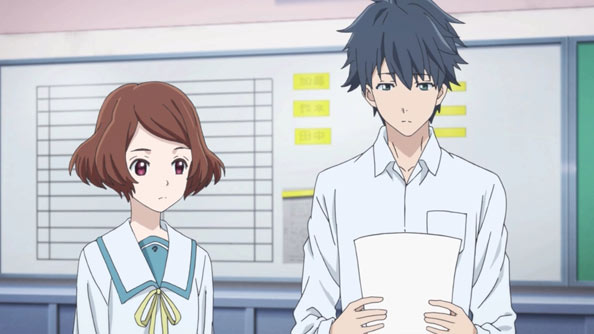Last week I felt bad for Hinata stuck at home as a housewife and mom when she, Naruto, and their friends once did battle side-by-side on the front lines…but I just might have it all wrong. This peaceful life, both for themselves and for their children, is what they fought for in the first place. But some youngins are restless, and long for a time they probably romanticize since they weren’t even alive for the worst of it.
One such knucklehead, Aino Iwabe, picks on Denki, leading to Boruto challenging him. It’s the second straight week Boruto saves Denki from a bully or bullies, only this week there’s much more emphasis on Boruto as a brat riding his illustrious dad’s coattails. After all, he crashed a train into a mountain and just got a slap on a wrist.
Between that incident, the lenient punishment, Yamanaka Inojin’s shade, and Iwabe’s taunts, Boruto has to work for acceptance by his peers (at least the ones who aren’t Denki or Shikadai). That means the class dismisses itself for a good old-fashioned schoolyard duel.
Boruto is able to keep up, but gets thrashed around quite a bit by the older and clearly more advanced Iwabe. Even Uchida Sarada, who had put up a haughty dismissive front to that point, seems to fret over the outcome of her childhood friend’s fight with the older kid.
In the end, Boruto all but convinces Iwabe that everyone has their individual circumstances, but blaming “the times” for one’s failures, not to mention picking on those weaker than you, is way uncool.
When Iwabe loses his temper and readies an earth-based weapon, he is quickly stopped by Inojin, who despite his earlier shade, gained respect for Boruto for defending Denki and proving through his skills that he’s not simply riding coattails.
When class reconvenes, Iwabe is right there behind Boruto, and they exchange cordial greetings. And Boruto is no longer unpopular, getting lunch invitations from many a classmate. Another peaceful resolution in a peaceful world. No one knows how long such peace will last, but they certainly can enjoy it while it does.

















